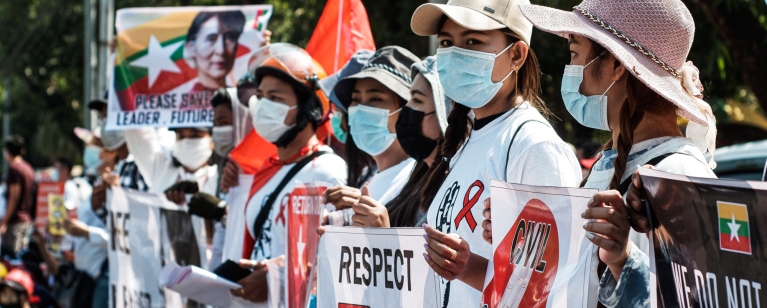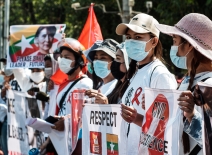
BESTSELLER has been sourcing from Myanmar since 2014, with their due diligence increasing year on year as the situation in the country has evolved. Following the coup in 2021, ETI published an independent assessment on human rights and responsible business conduct in the country, with recommendations for companies sourcing and operating in Myanmar. This case study looks at the steps BESTSELLER have taken prior to and in response to these recommendations.
Responsible sourcing
BESTSELLER’s global supply chain includes over 350 suppliers and 700 factories in 18 countries. The company’s due diligence processes are led by their global supply chain organisation and its responsible sourcing team. The processes are managed centrally by qualified industry experts on relevant risk areas and implemented by teams of Social & Labour and Environment & Chemical Specialists based in Bestseller’s regional sourcing offices. Approximately 45 labour and human rights and environmental and chemical experts work full time to uphold their sourcing standards. These teams operate out of regional sourcing offices in China, India, Bangladesh, Pakistan, Türkiye, Myanmar, and Cambodia. These countries account for more than 90 percent of factories producing for BESTSELLER and more than 98 percent of garments sourced, at the time of writing.
In Myanmar, BESTSELLER consolidated its supply chain from 36 factories at the time of the coup, to 21 and fortified its local team up to 11 full-time colleagues based in Yangon.
Spotlight on Myanmar
Prior to the coup in 2021, BESTSELLER had already established heightened human rights due diligence (hHRDD) processes for Myanmar. Following the coup, the company significantly scaled up their hHRDD processes closely aligned with good practice frameworks, including the OECD Due Diligence Guidance for Responsible Supply Chains in Conflict-Affected and High-Risk Areas and the UN Guiding Principles on Business and Human Rights (UNGPs), and built upon feedback from OECD National Contact Point, as well as local stakeholders such as the Myanmar Center for Responsible Business (MCRB).
Continue reading this case study below.

